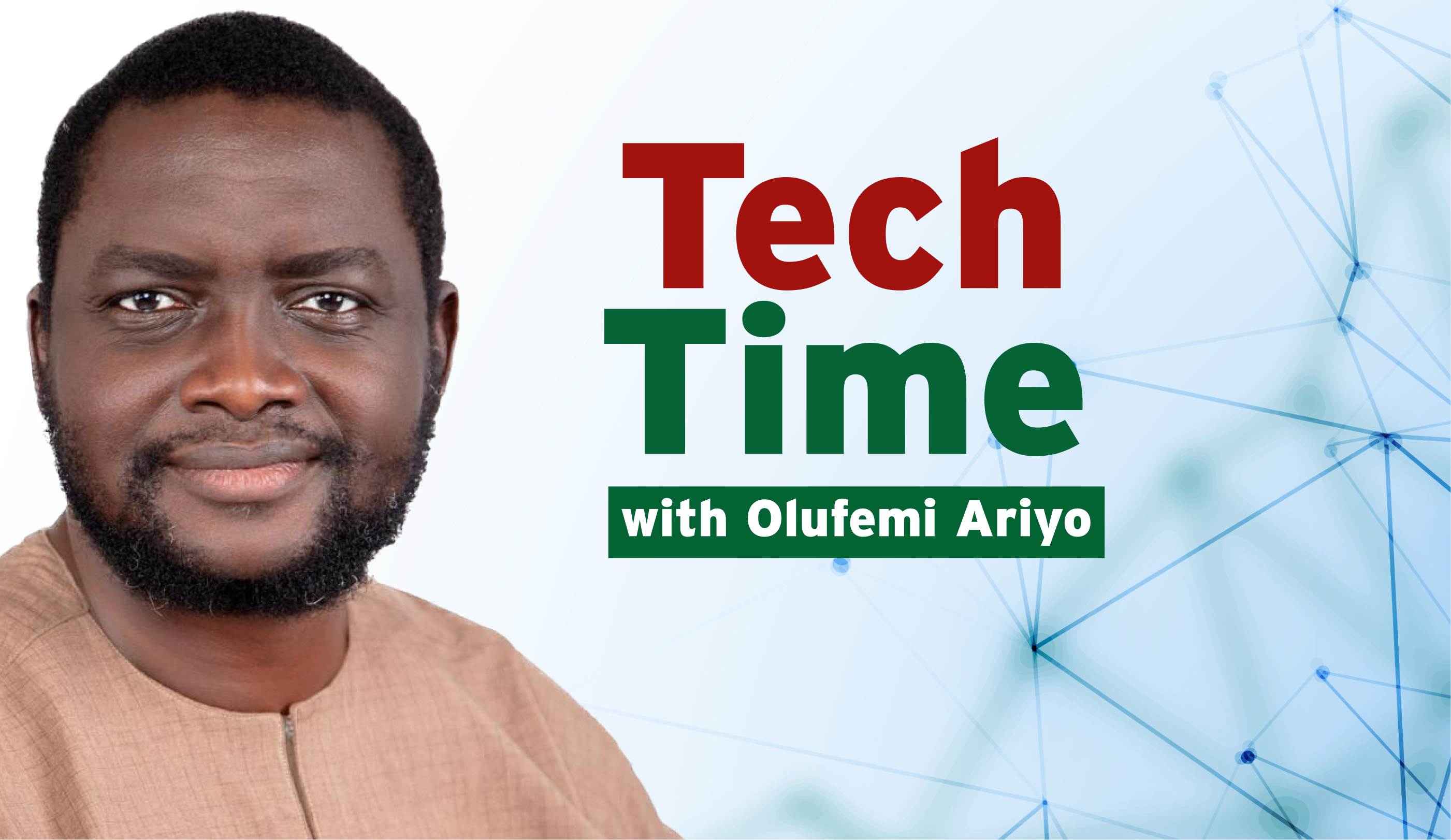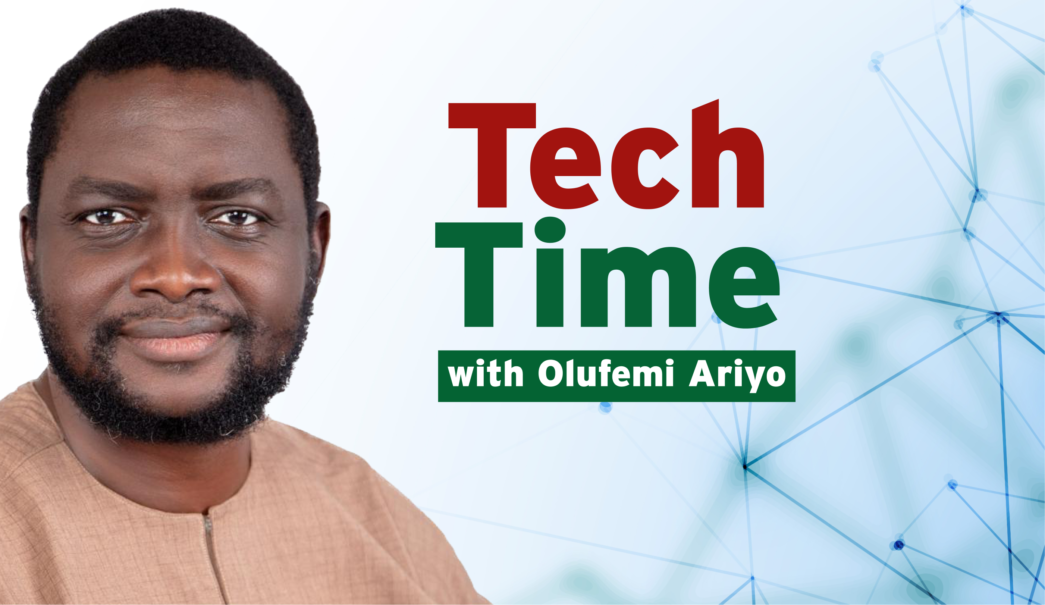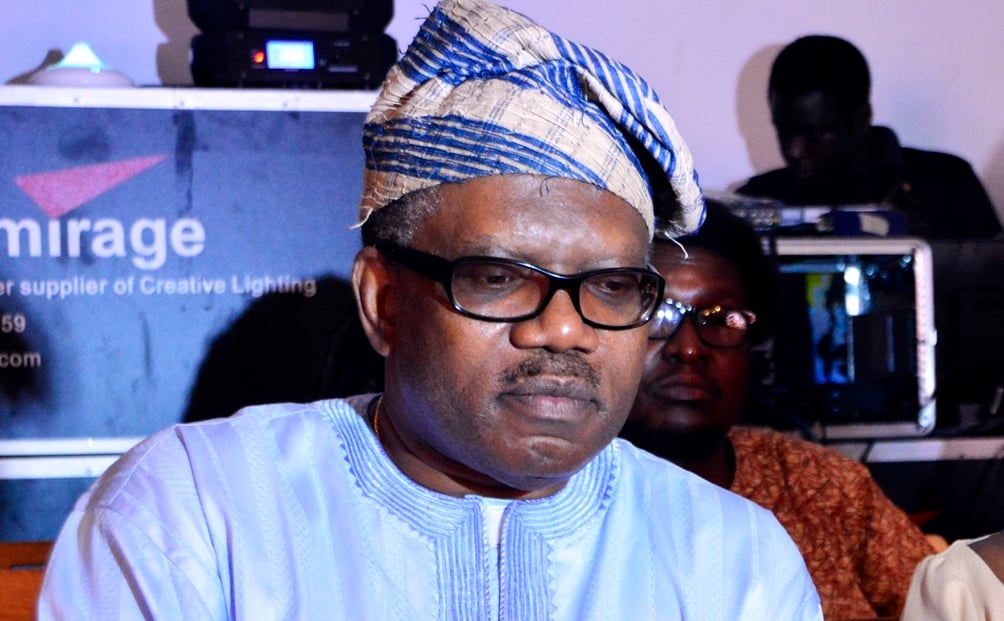Across Nigeria, a remarkable entrepreneurial wave is reshaping the landscape. From mobile vendors in Lagos to agritech startups in Kaduna, micro, small, and medium enterprises (MSMEs) are driving economic activity, creating employment, and showcasing the resilience of Nigerian ingenuity. The country’s young population, digital connectivity, and appetite for enterprise have positioned Nigeria as one of Africa’s most vibrant hubs for business creation. But beneath this momentum lies a critical blind spot — intellectual property (IP).
Despite the proliferation of businesses, Nigeria remains woefully underrepresented in global innovation metrics. Patent filings are low. Trademark protections are often ignored. Original inventions and proprietary technologies are rare. In short, Nigeria is full of business builders, but far fewer inventors — and that is a long-term risk. This raises a hard but necessary question: What is the true, sustainable value of a business that owns no intellectual property? In today’s economy increasingly driven by innovation, data, and intangible assets, ownership of ideas (not just products) determines who leads and who follows. To secure a competitive future, Nigerian entrepreneurs must go beyond survival mode and daily sales. They must begin to think, build, and invest like inventors. That means shifting from imitation to innovation, from short-term hustle to long-term strategy, and from being consumers of foreign technology to creators of homegrown solutions.
However, this transformation will not happen overnight, while definitely not unprecedented. China, once known primarily for low-cost manufacturing, has rapidly evolved into a global innovation powerhouse by prioritising IP, protecting domestic inventors, and embedding R&D into its private sector. The United States, home to some of the world’s most valuable companies, derives much of that value not from physical goods, but from software, patents, algorithms, and trademarks. What lessons can Nigeria learn from these global innovation ecosystems? And how can our entrepreneurs begin building not just businesses — but inventions that shape the future? In the sections that follow, we will explore why IP ownership must become central to the Nigerian entrepreneurial mindset, what practical steps MSMEs can take to protect and commercialise their innovations, and how policymakers and investors can help build an innovation-first economy.
(A). The Problem: MSMEs Stuck in a Profit-Only Mindset
Advertisement
Nigeria is home to over 39 million micro, small, and medium enterprises (MSMEs) — a massive engine of job creation, income generation, and local economic growth. These businesses span nearly every sector: agriculture, retail, manufacturing, digital services, logistics, fintech, and more. They represent the pulse of the informal and formal economy, often doing what governments and large corporations cannot: reaching underserved communities, moving fast, and adapting to market realities.
But despite their dynamism, most Nigerian MSMEs operate with a limited mindset — one focused almost entirely on short-term survival and profit. This narrow approach, while understandable in a volatile economy, leaves little room for innovation, product differentiation, or long-term value creation through intellectual property. Instead of inventing new products or services, many MSMEs replicate, repackage, or trade existing ones — whether it is importing low-cost goods for resale, duplicating mobile apps without original code, or simply offering generic services in saturated markets. This replication-based model may yield immediate revenue, but it rarely leads to defensible market positions or global scalability. As technology and competition accelerate, the vulnerabilities of this mindset become clearer. “You cannot scale globally with products anyone can copy freely,” says Olufemi Ariyo.
Why Nigerian MSMEs Do Not Prioritise IP
Advertisement
Several structural and systemic barriers keep MSMEs from viewing intellectual property as a critical asset:
- Lack of Awareness and Education
Most MSME founders have little to no exposure to IP concepts — including patents, trademarks, industrial designs, and copyrights. In many cases, they do not know:
- What qualifies as a patentable invention
- How trademarks can protect their brand identity
- That design rights can cover the look and feel of their products
- That copyright protection is automatic for original works
Without this basic knowledge, business owners do not even see IP as part of their strategic toolbox, let alone something worth investing in.
- High Cost and Complexity of Patent Filing
Even when an entrepreneur understands the importance of IP, cost remains a major barrier.
Advertisement
- Filing a patent in Nigeria through NOTAP or the Nigerian IP Office can be time-consuming, opaque, and expensive — especially for early-stage startups or informal businesses.
- International protection (e.g., WIPO or USPTO filings) is even more out of reach for most MSMEs, both financially and logistically.
As a result, many businesses either delay protection until it is too late, or simply never pursue it at all.
- Weak Commercialisation Ecosystem
Nigeria has very few technology transfer offices, IP incubators, innovation parks, or commercialisation intermediaries to help MSMEs bridge the gap between invention and market value. Even when entrepreneurs have great ideas, they often lack:
- Mentors to help refine and protect their innovation
- Legal and financial frameworks for licensing or joint ventures
- Access to R&D funding and IP-savvy investors
So, ideas die quietly or are taken by better-resourced competitors, locally or abroad.
- Minimal Institutional and Policy Support
Despite policy rhetoric about “innovation-driven development,” Nigeria still lacks a coordinated national strategy to support IP generation and enforcement at the MSME level.
Advertisement
- Patent backlogs can take years to process.
- Enforcement mechanisms are weak or inaccessible for small players.
- Schools and technical programs barely touch on innovation literacy.
This policy vacuum leaves MSMEs unsupported and exposed — operating in a world where creativity is undervalued and unprotected.
Advertisement
Why This Matters
In a globally connected digital economy, value is increasingly derived from intangible assets — code, brands, algorithms, designs, patents, and proprietary methods. Without owning such assets, Nigerian MSMEs will remain stuck in the lowest tiers of the value chain — competing on price, volume, and hustle rather than innovation, uniqueness, and brand power.
Advertisement
Without IP:
- A brilliant product can be copied by a bigger company.
- A growing business can be undercut by clones.
- A Nigerian startup can lose its competitive edge before it even scales.
In other words, profit without protection is a fragile kind of progress.
Advertisement
(B). Case Study 1: China’s Patent Revolution
China’s growth story is also a patent story. Over the past two decades, China has transformed from a low-cost manufacturing hub into one of the world’s most aggressive and prolific generators of intellectual property. What was once a country known primarily for copying foreign technologies is now the global leader in patent filings, outpacing even the United States, Japan, and Europe.
The Numbers: A Global Patent Powerhouse
In 2023 alone, China filed approximately 1.64 million patent applications (out of 3.55 million), according to the World Intellectual Property Organisation (WIPO). My first-hand experience with a bed and furniture making Chinese company left me amused as they had filed and secured 180 patents (now that is real lasting wealth). 1.64 million is more than the next three countries combined, and nearly ten times the volume of filings from the entire African continent. Some of the top Chinese patent filers include:
- Tencent – Leading in AI, gaming tech, and financial systems
- Baidu – Focused on autonomous vehicles and deep learning algorithms
- Alibaba – Filing in fintech, logistics, and cloud computing
- Huawei – Among the top global holders of 5G patents
- Chinese Academy of Sciences – Dominant in biotech, chemistry, and energy innovations
But China’s IP dominance is not just about raw numbers but about intentional national strategy.
State-Supported IP Strategy
China’s rise in the IP landscape is not accidental but the result of deliberate government policy and ecosystem development. Here is how China engineered a patent revolution:
- IP as an Economic Weapon: The Chinese government treats intellectual property not as an abstract legal concept, but as a strategic economic tool. IP is woven into:
- Industrial policy (e.g., Made in China 2025)
- Export strategy (e.g., licensing, tech standards)
- Foreign relations (e.g., cross-border IP litigation and enforcement)
This has helped Chinese companies defend global markets, dominate emerging tech sectors, and set international standards in 5G, AI, EVs, and more.
- Incentives for Filing and Innovation: China offers tax breaks, subsidies, and cash rewards for inventors and companies that file patents — especially in key strategic sectors like green energy, AI, and biotechnology. Universities and research institutes are also measured and ranked by the volume and commercialisation rate of their patent portfolios. This has created a high-pressure, high-output culture of innovation across both academia and industry.
- Tech Clusters and IP Infrastructure: Through national initiatives like Specialised Innovation Zones and High-Tech Industrial Parks, China has built entire ecosystems that integrate:
- R&D labs
- Patent law firms
- IP courts and arbitration centres
- State-backed accelerators and venture capital
These clusters (found in cities like Shenzhen, Hangzhou, and Beijing’s Zhongguancun) make it easy for a startup to file, protect, and monetise its inventions at scale.
- IP Education and Literacy: At the foundational level, China has invested in IP education — integrating it into engineering, business, and even high school curricula. Young entrepreneurs are taught early that innovation must be protected and strategically deployed.
Impact: IP as Leverage in Global Business
China’s aggressive IP strategy has yielded profound results:
- Huawei and ZTE now license core technologies to global telecom providers.
- Chinese companies increasingly sue foreign firms for IP infringement — flipping the script.
- China is shaping global tech standards, ensuring that its patents become essential to worldwide systems.
By treating IP as a form of economic leverage, China has gained influence not only in markets — but in diplomacy, trade negotiations, and global supply chains.
Lessons for Nigeria
For a country like Nigeria — rich in talent, entrepreneurial energy, and digital potential — China’s journey offers crucial takeaways:
- Patents are not just legal tools but economic assets.
- Policy drives behavior. When governments reward IP creation, ecosystems respond.
- Innovation needs infrastructure. Filing support, legal clarity, commercialisation pathways, and education all matter.
- IP literacy is as important as financial literacy.
If Nigeria’s MSMEs (and its broader innovation ecosystem) begin to treat intellectual property with the same seriousness China has, the nation could start to convert creativity into competitiveness, and enterprise into enduring economic power.
(C). Case Study 2: The USA’s IP-Driven Innovation Economy
When people think of American innovation, they often picture world-changing products — the iPhone, the electric car, the microchip, the internet. But behind those breakthroughs lies a less visible foundation: a deeply embedded culture of intellectual property (IP). In the United States, IP is not just an afterthought but an asset class. From university labs to startup incubators to corporate boardrooms, patents, trademarks, copyrights, and trade secrets are treated as core elements of business strategy, funding, and global competitiveness.
The Numbers Tell a Story
In 2023:
- The Massachusetts Institute of Technology (MIT) secured 343 patents — making it one of the most prolific single-campus research institutions in the world. These patents cover everything from AI to clean energy, from medical devices to quantum computing.
- The University of California system — with campuses like UC Berkeley, UCLA, and UC San Diego — led all U.S. universities in total patent filings, reflecting the deep integration of research, commercialisation, and IP strategy across academic institutions.
- Major corporations like Qualcomm, Apple, IBM, Microsoft, and Intel each hold tens of thousands of active patents, forming the backbone of their competitive advantage and market valuation.
The IP Infrastructure That Fuels Innovation
- Tech Transfer and Licensing Offices (TLOs)
At nearly every major U.S. research university, there is a dedicated Technology Licensing Office (TLO) or Office of Technology Transfer. These offices serve as the bridge between research and revenue. They:
- Help faculty, researchers, and graduate students file patents on their inventions
- Provide legal and financial support for licensing deals with industry
- Facilitate the launch of university spinout startups
- Negotiate royalties and revenue-sharing agreements that benefit both inventors and institutions
For example, the Stanford Office of Technology Licensing (OTL) helped commercialise Google’s original search algorithm, resulting in a royalty stream that funded further research and entrepreneurship.
- Startups Built on Protected IP
In Silicon Valley and across the U.S., startups are often born with a patent. Investors expect it. Founders understand its value. And without IP, many startups struggle to raise capital or defend their innovations.
Whether it’s a biotech startup with a novel cancer treatment, a fintech company with a proprietary algorithm, or a clean tech firm with a unique battery design — protected IP is often the foundation of the company’s valuation and funding roadmap.
In fact, venture capital firms routinely ask: “What’s your IP position?” during due diligence. A strong patent portfolio signals B.O.M.D:
- Barriers to entry
- Originality
- Monetisation potential
- Defensibility in competitive markets
- Corporations That Treat Patents as Core Assets
U.S. tech giants see IP as a strategic weapon:
- Qualcomm earns billions annually in licensing fees from its 5G and mobile patents, which are essential to nearly every smartphone on the planet.
- IBM holds one of the largest patent portfolios in the world and has monetised its IP through licensing and joint ventures.
- Apple aggressively patents both hardware and software features — not just to protect its designs, but to sue competitors, deter imitation, and control market dynamics.
These companies do not simply innovate — they defend, license, and litigate around their innovations, ensuring their intellectual property generates sustained value.
The Financial Value of IP
In the U.S., intellectual property is a bankable asset:
- IP-backed loans and venture debt are common.
- Some companies are valued more for their IP than their physical assets.
- Public companies regularly include IP valuation in their balance sheets and investor reports.
The IP-centric model does not merely protect ideas — it multiplies their value.
Key Lessons for Nigeria
The American innovation economy offers a powerful set of lessons for Nigerian entrepreneurs, universities, and policymakers:
- IP Attracts Capital: Investors in the U.S. rarely back ideas that are not protected. Nigerian startups must adopt the same mentality if they want to raise global capital and scale with confidence.
- Universities Can Be Innovation Engines: Nigerian universities have the talent and ideas — but without robust tech transfer systems, those ideas rarely become products. Establishing TLOs can unlock huge untapped value.
- Build It. Protect It. Then Scale: From Silicon Valley to Boston, the message is clear: you don’t wait to protect IP — you start with it. Nigerian innovators must learn to see IP as the first step in building globally competitive ventures.
- IP Creates a Knowledge Economy: As Nigeria seeks to diversify from oil and agriculture, an IP-driven economy (rooted in research, creativity, and technology) offers a clear path forward.
In the U.S., IP is not a luxury — it’s a necessity. It is the foundation on which multi-billion-dollar companies are built, ideas are defended, and markets are captured. For Nigeria to become a true innovation economy, it must embrace this same ethos — institutionalise IP, educate its entrepreneurs, and build systems that convert creativity into capital – imagine if the massive Nigerian youth population becomes a thinking engine rather than a worrying one.
(D). The Nigerian Reality: Where Are We?
Despite being home to over 39 million MSMEs, a thriving creative sector, and an increasingly digital economy, Nigeria remains vastly underrepresented in global and local intellectual property activity. The entrepreneurial spirit is alive, but the innovation is often unprotected, and therefore undervalued. Across sectors (fashion, agriculture, tech, entertainment, design) Nigerian creators and business owners are building products, processes, and brands that could become national assets. Yet, very few of them own the rights to what they create.
IP Ownership Among MSMEs Is Exceptionally Low
Most Nigerian MSMEs do not file for patents, trademarks, copyrights, or industrial designs. This is not due to a lack of originality or potential. Rather, it is a reflection of systemic gaps, cultural perceptions, and infrastructural weaknesses.
For many small business owners, IP is seen as what is acronym as I.C.E.S:
- Irrelevant – A concern for “big companies,” not for hustlers or artisans
- Complex – Wrapped in legal language and bureaucracy
- Expensive – Out of reach for lean budgets
- Slow and opaque – With government agencies seen as inefficient or inaccessible
Most MSMEs in Nigeria are trying to survive this month rather than thinking about who might steal their idea next year.
Underutilised National IP Infrastructure
Nigeria’s IP framework technically exists. The Trademarks, Patents and Designs Registry under the Federal Ministry of Industry, Trade and Investment is the statutory body responsible for IP filings. It accepts:
- Patents (for inventions and processes)
- Trademarks (for brand names, logos, slogans)
- Industrial Designs (for product shapes and aesthetics)
But in practice, the Registry is underutilised — particularly by MSMEs.
- Patent filings remain extremely low compared to the size of the economy and its innovation potential.
- Many business owners do not know the office exists, or how to engage with it.
- Processes are still largely manual, slow, and non-transparent, despite recent efforts at digitisation.
- Few IP professionals or lawyers are affordable to MSMEs, especially outside major cities.
The result: Nigeria is leaking innovation. Products are launched, copied, and scaled (sometimes by foreign competitors) without the originators receiving recognition or returns.
Real-World Examples of IP Vulnerability
- Fashion Brands: Nigeria’s fashion scene is globally recognised, ranging from Lagos Fashion Week to Instagram-driven fashionpreneurs. But few designers register trademarks or protect their signature styles. The result? Knockoffs flood the market, both locally and internationally, with no recourse.
- Agro-Processing Innovation: Innovative tools in post-harvest storage, food packaging, and local machine fabrication (e.g., garri processors, solar dryers) are emerging. But most of these products are built from scratch without protection. Fabricators do not patent designs, leaving them vulnerable to cheaper imitations.
- Tech Startups: Some Nigerian tech startups launch with MVPs (minimum viable products) built from original code or concepts. But without copyright registration or software patents (where applicable), larger players can clone features or ideas without legal consequence — especially when IP was never secured from the start.
Early Efforts Are Promising, But Still Marginal
There have been attempts to bridge the IP gap for MSMEs but the scale and impact remain limited.
- SMEDAN’s IP Support: The Small and Medium Enterprises Development Agency of Nigeria (SMEDAN) has partnered with the Trademarks, Patents and Designs Registry to raise awareness and help MSMEs apply for protection. However, many of these efforts are pilot programs or workshops, not yet scaled nationwide.
- WIPO Branding & IP Clinics: The World Intellectual Property Organisation (WIPO) has organised branding and IP clinics in Nigeria, especially for women-led businesses and rural entrepreneurs. These initiatives have introduced basic concepts of IP protection, especially for value-added agricultural products. But again, reach is limited.
- Legal Clinics by Universities: Some Nigerian law faculties and incubators have begun offering pro bono IP registration support to startups. This is encouraging, but only touches a small segment of the MSME population.
What This Means for Nigeria
Nigeria is in a critical phase: bursting with entrepreneurial energy, yet lacking the mechanisms to protect and scale what it builds. Without a cultural and structural shift toward IP awareness and ownership, the country risks:
- Losing valuable innovations to competitors
- Undermining the creative economy
- Failing to attract investors who prioritise proprietary advantage
- Missing out on royalties, licensing income, and global brand leverage
In short, innovation without IP is innovation without protection; and ultimately, innovation without power.
(E). What Must Change: From Hustle to Invention Culture
Nigeria’s entrepreneurial ecosystem is full of grit, energy, and hustle — but hustle alone cannot build an innovation economy. For Nigeria to compete globally, the culture must evolve — from one focused on day-to-day survival, to one that deliberately creates, protects, and commercialises new ideas. The next phase of Nigeria’s economic story must be defined not just by how many businesses we start — but by how many original inventions, protected brands, and scalable innovations we produce. This means reimagining the role of the MSME, the university, and the government. Each must evolve (urgently and deliberately) to lay the foundation for a truly IP-powered innovation economy.
- MSMEs Must See Themselves as Creators — Not Mere Traders
Too many Nigerian entrepreneurs are stuck in transactional thinking — buy, mark-up, sell. While this may generate income, it rarely builds defensible value. To thrive long-term, MSMEs must begin to see themselves not just as resellers, but as inventors, designers, and brand builders.
Key mindset shifts needed:
- Stop asking: “What can I sell quickly?” Rather Start asking: “What can I build that others can’t easily copy?”
- View innovation not as a luxury, but as a competitive edge.
- Understand that owning a trademark, design, or patent is not just paperwork — it is protection, positioning, and profitability.
- Learn from Nollywood, Afrobeats, and Nigerian fashion — sectors where IP can transform creativity into global influence and income when properly protected.
Support needed:
- Targeted IP awareness campaigns aimed at market women, artisans, and tech founders — in local languages and simplified formats.
- More accessible IP clinics, hubs, and legal aid for startups and creators.
- Universities Must Commercialise R&D — Not Just Publish It
Nigerian universities produce thousands of academic papers, engineering theses, and scientific prototypes each year. But very few make it out of the lab and into the market. The result? Dormant ideas, missed commercial opportunities, and wasted intellectual capital.
What needs to change:
- Academic performance must be tied to innovation output, not simply publication volume.
- Research departments should be tasked with identifying and protecting patentable work.
- Every major university should establish a Technology Licensing Office (TLO) to support inventors, file patents, and negotiate licenses.
- Partnerships between universities and industries must be incentivised to bring products to market.
Global models to emulate:
- MIT and Stanford generate millions in licensing revenue annually through strong IP pipelines.
- The Obafemi Awolowo University, University of Ibadan, Covenant University, and Ahmadu Bello University have the potential to lead this change if supported.
- Government Must Lower IP Barriers and Lead by Policy
For an invention culture to thrive, the government must create the right legal, financial, and administrative environment for IP to be understood, valued, and protected.
Key reforms needed:
(a). Reduce the Cost and Complexity of IP Registration
- Digitise and simplify IP filing processes.
- Create tiered pricing models for MSMEs and early-stage startups.
- Allow for group registrations for cooperatives, clusters, or associations.
(b). Build IP into MSME and Youth Programs
- Every SME policy must include IP education and support.
- Youth entrepreneurship schemes (like NYSC’s SAED or N-Power) should include IP components.
- Grants and funding schemes should prioritise IP-backed innovations.
(c). Strengthen IP Enforcement and Deterrence
- Make it easier to report and prosecute IP theft.
- Establish small claims IP tribunals for MSMEs who cannot afford long legal battles.
- Use customs, police, and regulatory bodies to clamp down on counterfeiting and brand theft.
(d). Position IP as an Economic Development Tool
- IP policy should not sit in isolation but be linked to industrial policy, trade, education, and digital economy strategy.
- National innovation targets should include IP output and commercialisation goals — just as we measure FDI, exports, and GDP growth.
The Cultural Shift We Need
If Nigeria is to build global businesses, not merely busy markets, we must embrace a new cultural identity:
From Hustlers to Inventors. From Copying to Creating. From Selling to Scaling. From Survival Mode to Strategic Ownership.
This shift won’t happen overnight — but it must begin now. MSMEs need to be empowered, universities need to be unlocked, and policymakers must act with urgency. A nation’s ideas are its future. If we do not own them, someone else will.
(F). Actionable Proposals for Policymakers, Entrepreneurs & Stakeholders
| Actor | Recommended Actions |
| Entrepreneurs | – Audit your business for IP assets
– Learn about patents, trademarks, industrial designs – File locally first, then explore WIPO – Collaborate with IP lawyers and tech hubs |
| Policymakers / Government | – Subsidize patent filings for MSMEs
– Set up IP Clinics in universities and hubs – Build innovation funds tied to patent creation – Enforce IP laws faster, reduce infringement |
| Universities | – Create or strengthen Technology Transfer Offices
– Incentivize lecturers to patent – Turn final year / MSc projects into products with commercial potential |
| Investors / Banks | – Accept IP as collateral
– Fund IP-backed ventures – Support IP audits and monetization pathways |
Conclusion: Nigeria’s Opportunity to Lead — If It Chooses To
Nigeria is not short on talent, ideas, or entrepreneurial energy. With over 39 million MSMEs, a booming creative economy, and a rising tech ecosystem, the country stands on the edge of a transformative opportunity: to become Africa’s patent and IP powerhouse. Imagine this: if just 1% of Nigeria’s MSMEs owned a meaningful patent, that is nearly 400,000 protected innovations — products, technologies, methods, and designs with global potential and real economic value (increase that to 4 percent or 4 each and we meet-up with China).
The impact would be profound:
- Startups would attract serious investment based on protected innovations.
- Universities would spin out IP-driven ventures instead of just publishing papers.
- Creative entrepreneurs would license their work, not lose it to copycats.
- The economy would shift from hustle to high-value enterprise.
This is more than policy. It’s more than paperwork. It is a mindset shift. It is time to redefine what business success looks like — not only by revenue, but by ownership. Not simply by sales, but by intellectual property.
Your Next Step
“The next time you build a product, ask yourself — can this be patented? If yes, protect it. If not, innovate until it can.” The future belongs to those who create and protect what they create. So, here is your invitation:
Join the Movement
- Share your IP journey using the hashtag #TechTimeWithOlufemi — we want to hear your stories, struggles, and successes.
- Send us your IP-related questions — we will answer them in future editions.
- Forward this article to friends and families and ensure they read it — let’s save Nigeria!
Together, we can spark a culture shift — one where Nigerian businesses are not only fast, but forward-thinking; not just local, but globally competitive; not merely selling, but owning. Let’s build an economy of inventors. Let’s build an economy of owners. Let’s build Nigeria’s IP future — now.
Thank you for engaging with this thoughts trail. To continue the conversation, explore collaborations, or access additional resources, feel free to connect through Medium: https://medium.com/@roariyo and LinkedIn: https://www.linkedin.com/in/olufemiariyo or send an email to [email protected]










